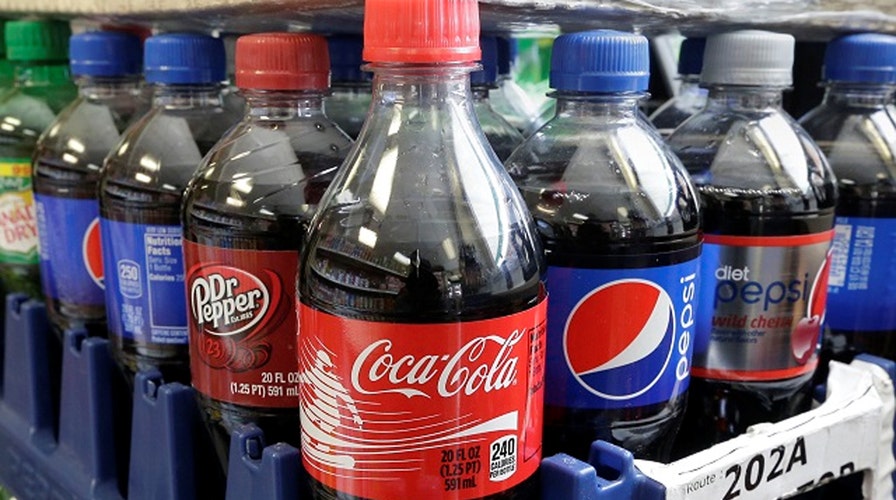Philadelphia becomes first US city to pass soda tax
Tax would add extra 1.5 cents per ounce to the cost of sugary drinks
Philadelphia’s recent move to implement a tax on sugary soft drinks has been the subject of criticism from both the city’s residents and the American Beverage Association. Now soda venders are popping their tops.
According to Bloomberg, some soda distributors and grocers are complaining that the soda tax has drastically reduced revenue from soft drinks, with some companies reporting decreased sales of nearly 50 percent since the tax went into effect on January 1.
Canada Dry Delaware Valley, a company that distributes several soft drinks in the area, claims to have seen a 45 percent decrease in business over the same time period in 2016, reports Bloomberg.
Bob Brockway, the company’s chief operating officer, says he expects to lose about a third of his business by the end of the year.
PHILLY RESIDENTS UP IN ARMS OVER SODA TAX
The CEO of Brown’s Super Stores, which operates local ShopRite and Fresh Grocer locations, has also reported a 15 percent decline in revenue.
“In 30 years of business, there’s never been a circumstance in which we’ve ever had a sales decline of any significant amount,” said Jeff Brown, the CEO of Brown’s Super Stores, in a statement to Bloomberg.
“I would describe the impact as nothing less than devastating.”
Distributors are already blaming the tax for impending layoffs, with the owner of several ShopRite stores in Philadelphia telling Philly.com that he’ll need to lay off 300 workers in the wake of decreased sales.
Philadelphia’s soda tax was first proposed in March 2016 by Mayor Jim Kenney as a way to raise funds for parks, public rec centers, libraries, schools, and specifically the city’s pre-kindergarten programs. But some consumers have been less than receptive to the city’s money-making measure from the start, arguing that the 1.5 cent-per-ounce tax is taking a huge toll on their grocery bills.
From a Facebook post, the Philadelphia sugary drink tax implemented today damn, between that & Pennsylvania gas tax no wonder folk revolted pic.twitter.com/ZUtmufCyQn
— SalenaZito (@SalenaZito) January 2, 2017
Bob Brown of Brown’s Super Stores also argues that since prices are driving consumers outside city limits, he’s not just losing out on soda sales — he’s losing any revenue he would’ve generated from the non-soft-drink items he sells.
City officials, however, argue that grocery stores and vendors do not need to pass this tax along to their customers, as it’s not actually a sales tax, but rather a tax on distributors.
“Since it is not a sales tax, distributors … do not have to pass it down to their customers, the dealers,” spokesperson Mike Dunn told Fox News in early January. “They could choose to slightly lessen their seven-figure bonuses, for example.”
FOLLOW US ON FACEBOOK FOR MORE FOX LIFESTYLE NEWS
Jim Krieger, the executive director of Healthy Food America and an advocate for the tax, claims that vendors are pre-emptively reporting losses in an effort to get the legislation overturned.
“This is just an attempt by industry to whip up the troops and try to turn back sound public policy,” Krieger told Bloomberg. “The bottom line is that the purpose of the tax was to raise money for important needs and to serve the residents of Philadelphia, and it’s doing precisely that.”
According to Philly.com, the city agrees that it’s too soon to know the economic impact of the tax on distributors. But as Mayor Kenney recently told the Associated Press, the tax has generated $5.7 million in January alone, more than double what the city expected.
Philadelphia’s soft-drink tax was the first of its kind for a major U.S. city when it was implemented in January. Cities such as San Francisco, Calif., Boulder, Co., and the entirety of Cook County, Illinois, have since followed suit.
